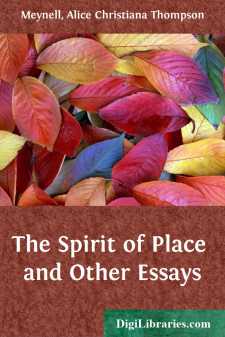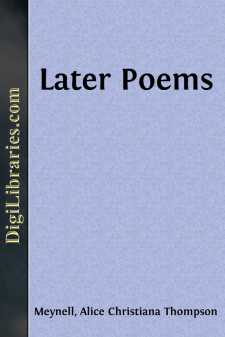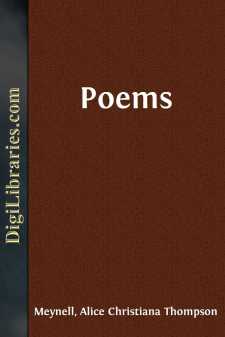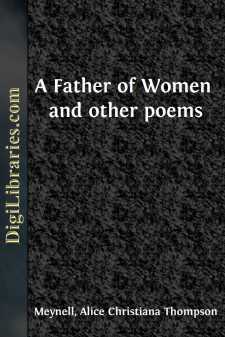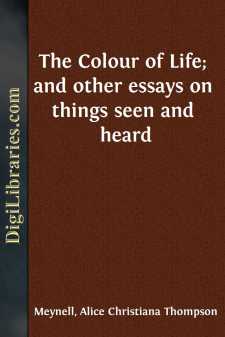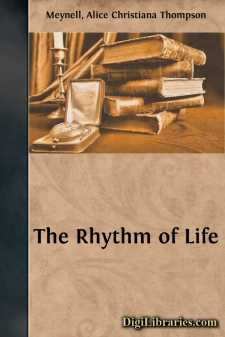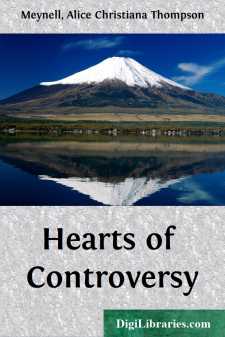Categories
- Antiques & Collectibles 13
- Architecture 36
- Art 48
- Bibles 22
- Biography & Autobiography 813
- Body, Mind & Spirit 142
- Business & Economics 28
- Children's Books 17
- Children's Fiction 14
- Computers 4
- Cooking 94
- Crafts & Hobbies 4
- Drama 346
- Education 46
- Family & Relationships 57
- Fiction 11829
- Games 19
- Gardening 17
- Health & Fitness 34
- History 1377
- House & Home 1
- Humor 147
- Juvenile Fiction 1873
- Juvenile Nonfiction 202
- Language Arts & Disciplines 88
- Law 16
- Literary Collections 686
- Literary Criticism 179
- Mathematics 13
- Medical 41
- Music 40
- Nature 179
- Non-Classifiable 1768
- Performing Arts 7
- Periodicals 1453
- Philosophy 64
- Photography 2
- Poetry 896
- Political Science 203
- Psychology 42
- Reference 154
- Religion 513
- Science 126
- Self-Help 84
- Social Science 81
- Sports & Recreation 34
- Study Aids 3
- Technology & Engineering 59
- Transportation 23
- Travel 463
- True Crime 29
The Spirit of Place and Other Essays
Categories:
Description:
Excerpt
THE SPIRIT OF PLACE
With mimicry, with praises, with echoes, or with answers, the poets have all but outsung the bells. The inarticulate bell has found too much interpretation, too many rhymes professing to close with her inaccessible utterance, and to agree with her remote tongue. The bell, like the bird, is a musician pestered with literature.
To the bell, moreover, men do actual violence. You cannot shake together a nightingale’s notes, or strike or drive them into haste, nor can you make a lark toll for you with intervals to suit your turn, whereas wedding-bells are compelled to seem gay by mere movement and hustling. I have known some grim bells, with not a single joyous note in the whole peal, so forced to hurry for a human festival, with their harshness made light of, as though the Bishop of Hereford had again been forced to dance in his boots by a merry highwayman.
The clock is an inexorable but less arbitrary player than the bellringer, and the chimes await their appointed time to fly—wild prisoners—by twos or threes, or in greater companies. Fugitives—one or twelve taking wing—they are sudden, they are brief, they are gone; they are delivered from the close hands of this actual present. Not in vain is the sudden upper door opened against the sky; they are away, hours of the past.
Of all unfamiliar bells, those which seem to hold the memory most surely after but one hearing are bells of an unseen cathedral of France when one has arrived by night; they are no more to be forgotten than the bells in “Parsifal.” They mingle with the sound of feet in unknown streets, they are the voices of an unknown tower; they are loud in their own language. The spirit of place, which is to be seen in the shapes of the fields and the manner of the crops, to be felt in a prevalent wind, breathed in the breath of the earth, overheard in a far street-cry or in the tinkle of some black-smith, calls out and peals in the cathedral bells. It speaks its local tongue remotely, steadfastly, largely, clamorously, loudly, and greatly by these voices; you hear the sound in its dignity, and you know how familiar, how childlike, how life-long it is in the ears of the people. The bells are strange, and you know how homely they must be. Their utterances are, as it were, the classics of a dialect.
Spirit of place! It is for this we travel, to surprise its subtlety; and where it is a strong and dominant angel, that place, seen once, abides entire in the memory with all its own accidents, its habits, its breath, its name. It is recalled all a lifetime, having been perceived a week, and is not scattered but abides, one living body of remembrance. The untravelled spirit of place—not to be pursued, for it never flies, but always to be discovered, never absent, without variation—lurks in the by-ways and rules over the towers, indestructible, an indescribable unity. It awaits us always in its ancient and eager freshness. It is sweet and nimble within its immemorial boundaries, but it never crosses them. Long white roads outside have mere suggestions of it and prophecies; they give promise not of its coming, for it abides, but of a new and singular and unforeseen goal for our present pilgrimage, and of an intimacy to be made. Was ever journey too hard or too long that had to pay such a visit? And if by good fortune it is a child who is the pilgrim, the spirit of place gives him a peculiar welcome, for antiquity and the conceiver of antiquity (who is only a child) know one another; nor is there a more delicate perceiver of locality than a child. He is well used to words and voices that he does not understand, and this is a condition of his simplicity; and when those unknown words are bells, loud in the night, they are to him as homely and as old as lullabies....


